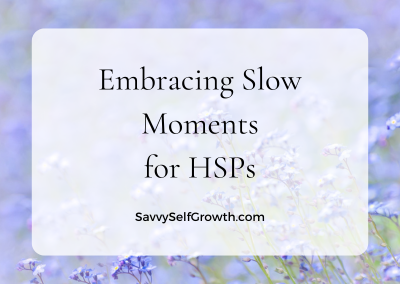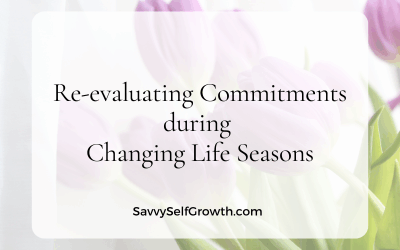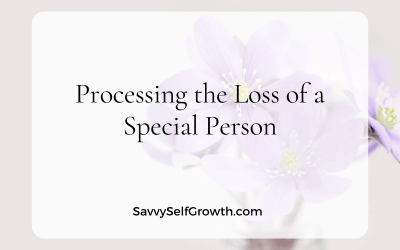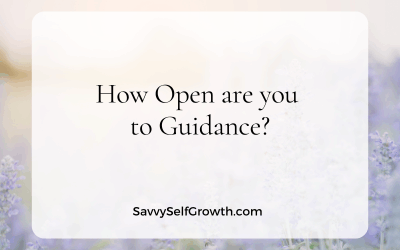Today I want to talk about ways of bringing a few slower moments of calm into each day, and what it does for us.
We lived in London for 3 years in a tiny flat with no garden. To feel relaxed and calm, I need connection with nature and her rhythms — so I scheduled self-care in the form of a daily walk in our local eco-park.
One day, I noticed that I was walking very fast. While that is good for fitness and heart health, I noticed I was walking to complete it, so that I could get home and start my next task. I was feeling hurried — not present and enjoying the walk.
Thankfully I was conscious enough to make a decision there and then to slow right down. I brought all my attention to the present moment.
How do we get present?
Engage the senses!
“What can I smell? Hear? See? Feel in my body? Smell?”
I suddenly saw the lovely spring flowers with different colours, shapes and sizes. The birdsong I didn’t hear before, suddenly jumped out and I felt delighted! I felt the spring coolness on my skin, smelled recently mowed grass, and sweet flower fragrances. I felt so happy in that moment of awareness.
It was a lovely, calming experience and immediately brought more peace and a sense of “This is my life, right now, right here”, instead of “Life is when I get home for the next task”.
How long did it last?
I’d love to say I felt present for the rest of the day. As soon as I got home, though, I noticed that I started thinking about everything I needed to do. That darn list… And all the calm evaporated, replaced by anxiety.
The next task was writing. I took my cup of coffee to my desk. Usually, I drink the coffee and eat a snack rather absently while writing — and then suddenly notice it’s finished, without really tasting or enjoying any of it. Do you know that feeling of disappointment, too?
This time, because of the lovely experience in the park, I decided to take the time to close my eyes and taste each piece of the snack. I took slow sips of coffee, tasting it, feeling the warmth of the mug between my hands, and the warm liquid go down to the stomach after every sip. In between, I took a few deep, slow breaths with my hands on my heart. I noticed deep sighs, which are sure signs of relaxation in my world.
As I’m writing this down, I feel calmer and more relaxed even just thinking about those few slower moments.
How often do you take time to slow down and fully experience the present moment?
What does slowing down do for HSPs?

#1 Immediately relaxing
As I discovered, slowing down has an immediate relaxing effect. As a result, our conscious brain (that makes decisions, plans, schedules, sets goals, and stays on task), can work more effectively.
When we relax, our body is in the ‘rest and digest’ program, instead of in ‘fight, flight or freeze’. In a given moment, our body can either be in healing mode, or in stress mode. It cannot do both at the same time.
When we’re feeling stressed and anxious about everything on our plate, our body isn’t healing or repairing our cells. Neither can we think properly. When we experience stress, up to 1,400 chemicals and 30 hormones in the body are affected. That’s a lot of activity.
#2 I’m living my life right now
Another benefit of slowing down and getting fully present, is we get to feel like we are living our life — instead of life zooming past us.
Have you noticed how often you get to the end of the day and think “What did I do all day? I know I was busy, but I can’t remember what I did!”
Slowing down and becoming fully present with all our senses a few times a day, helps us to feel like we lived (and were present for it) on this day. At the end of any day, more than likely, it will be those slower moments that stand out for us.
Those moments we enjoyed and felt like we were living in our body… they’re the stress-free moments that help our body and mind cope with the frantic pace we expect ourselves to keep up.
A little present-moment exercise for you
When you notice yourself rushing to the next thing, try this:
- Consciously slow down. Stop what you’re doing.
- Close your eyes if you are comfortable with it.
- Take a few really slow, deep breaths in.
- If you’re in a place where you feel comfortable doing this, put your hand on your heart while you take a few breaths of 4–6 seconds in, and 4–6 seconds out. Do at least 4 or 5 of these cycles, for the relaxation response to kick in.
- Notice 3 things you see around you, and appreciate each.
- Notice 3 things you hear. Could you appreciate every sound?
- Notice sensations in your body, and name them.
- Tell your body you’ve noticed and thank your body for bringing your attention to that.
- Feel the peace that has come into your experience from simply slowing down and getting present.
- Repeat throughout your day as you are able.
When we can’t change Life’s Pace
We’re living at a frenetic pace. For introverts and HSPs, it’s not ideal. We need decompress time to process it all. The more we pack in, the more time we need to process, yet we still have only 24 hours a day.
When I wrote this, I was on a learning course that required 10 hours of classes every week, plus homework in between. Those classes finished at 8 pm 2 nights per week, and often we only ate dinner at 9. Not healthy, goodness, I know… but that’s what was on the metaphorical plate then. The evenings were over before I knew it.
It felt impossible when a Monday rolled by again! The days whizzed by, and weekends didn’t feel long enough to recover. In between coursework, we’ve had to organize 24-hour caring for my mom in South Africa. There were hectic weeks and I was so grateful to my sister who did an absolutely sterling job. I wasn’t alone in the task — and it still took time and processing power.
Reminder: Pockets of rest
Perhaps you’re in the same boat, where it feels like life is happening far too fast. I do believe that especially for introverts and HSP’s, the pace of our lives has a large impact on our wellbeing.
It’s not ideal for me to pack so much into life, so many weeks in a row. Yes, I chose to be on the course and I was incredibly grateful for it. I learned wonderful stuff and am looking forward to offering a valuable service. And still… it did have quite an impact on my life experience and energy levels.
Here’s a reminder that even if there must be large pockets of very busy time, even very tiny pockets of slow time can help restore a little bit of balance.
If we can’t slow down the pace for whatever reason, we can always take mini-breaks. Being fully present in just a few minutes a day, can help us to feel more even-keeled, calmer and slower.
And, tapping!
Of course, I must mention EFT Tapping. This morning I went on my walk before breakfast, instead of later in the day. It felt like I needed to start my day in nature. And while I walked, I tapped for a few things that felt difficult. The worry-thoughts about a few things awaiting me later in the day, were keeping me from being fully present. As soon as I’d released the stress about those, I could enjoy the birdsong and green trees.
Walking in nature and tapping has been a great combination for me to restore calm.
A reflection for you:
How do you slow down and bring balance when “everything everywhere is happening all at once”?
(Did you see the movie? Oh my gosh… a truly overwhelming experience for me!)




